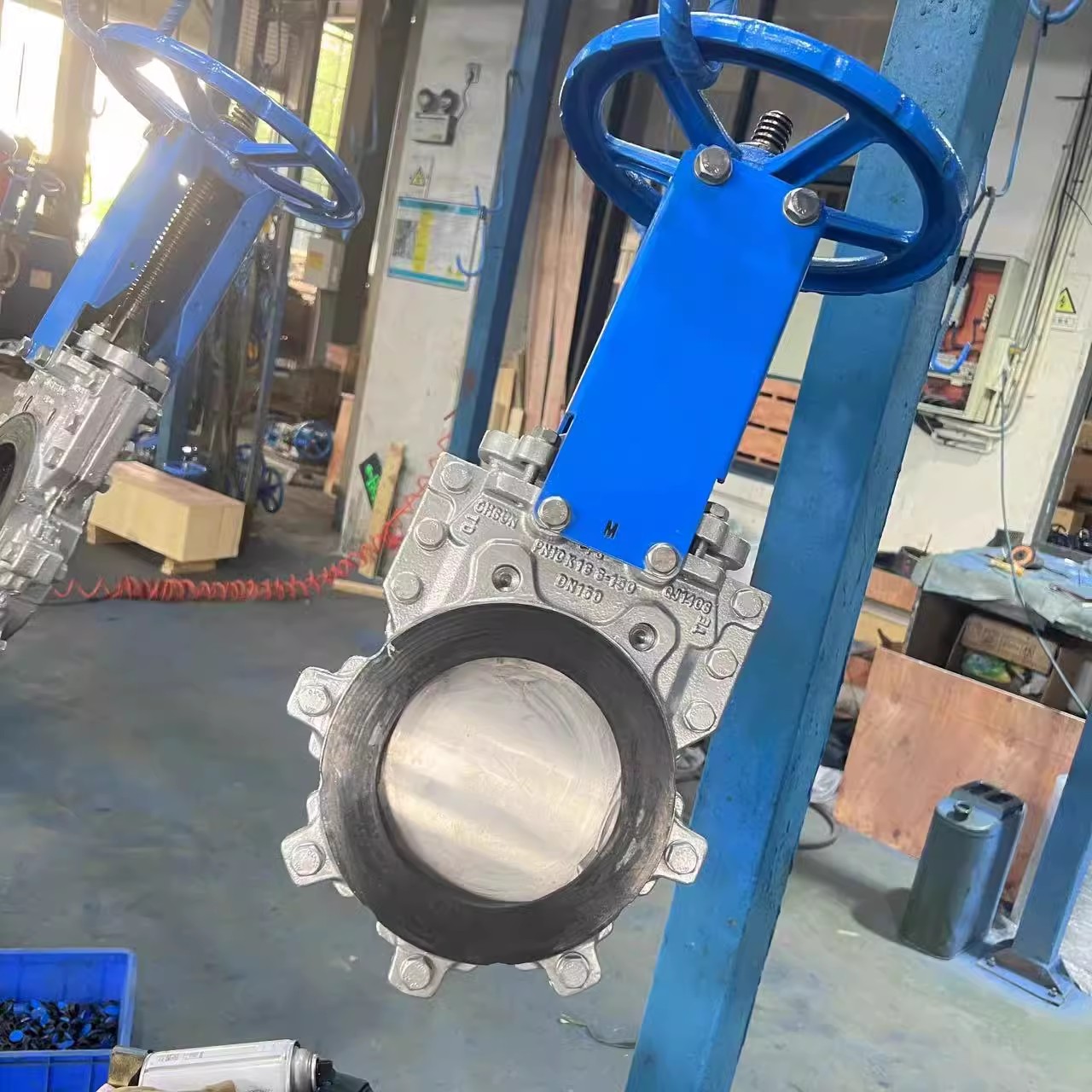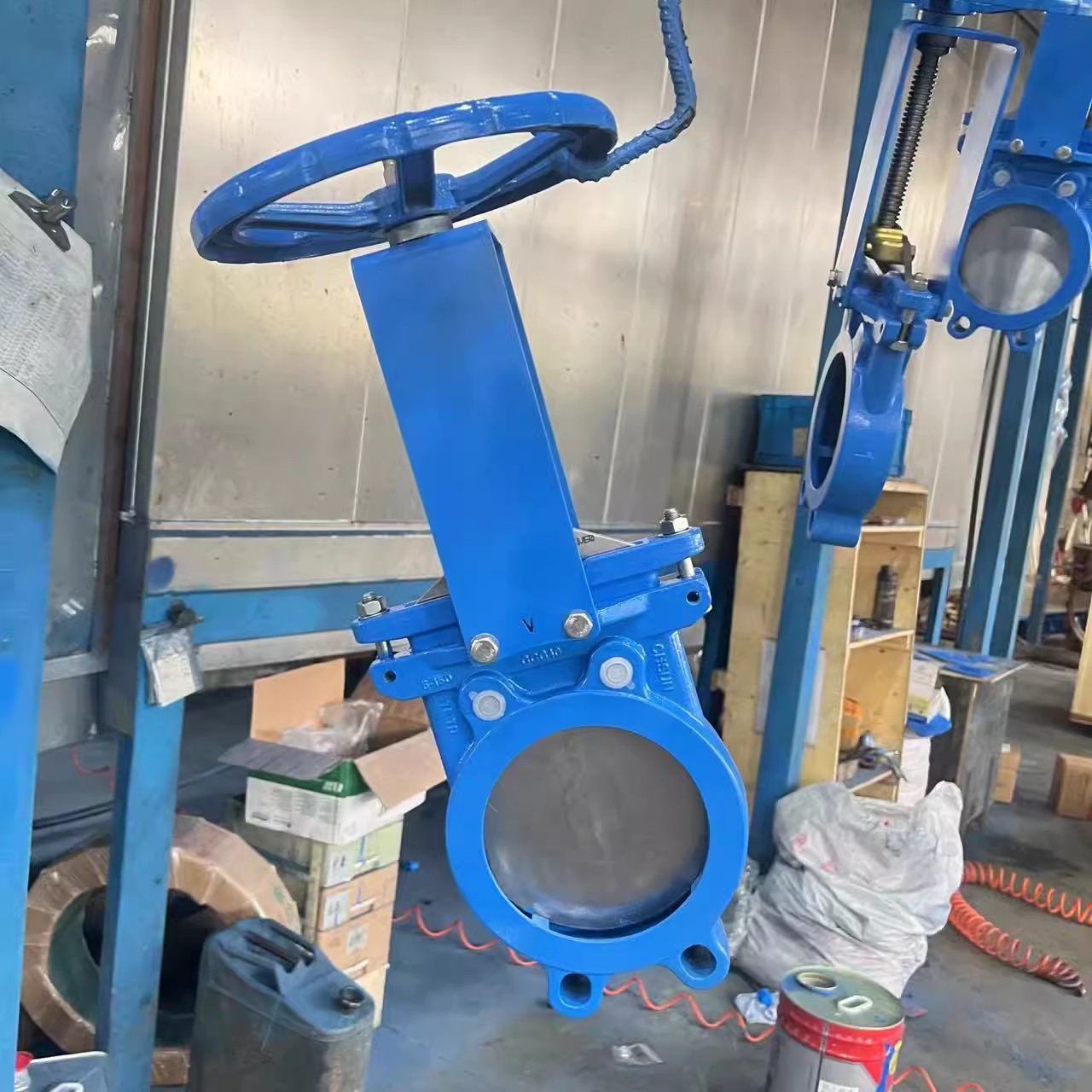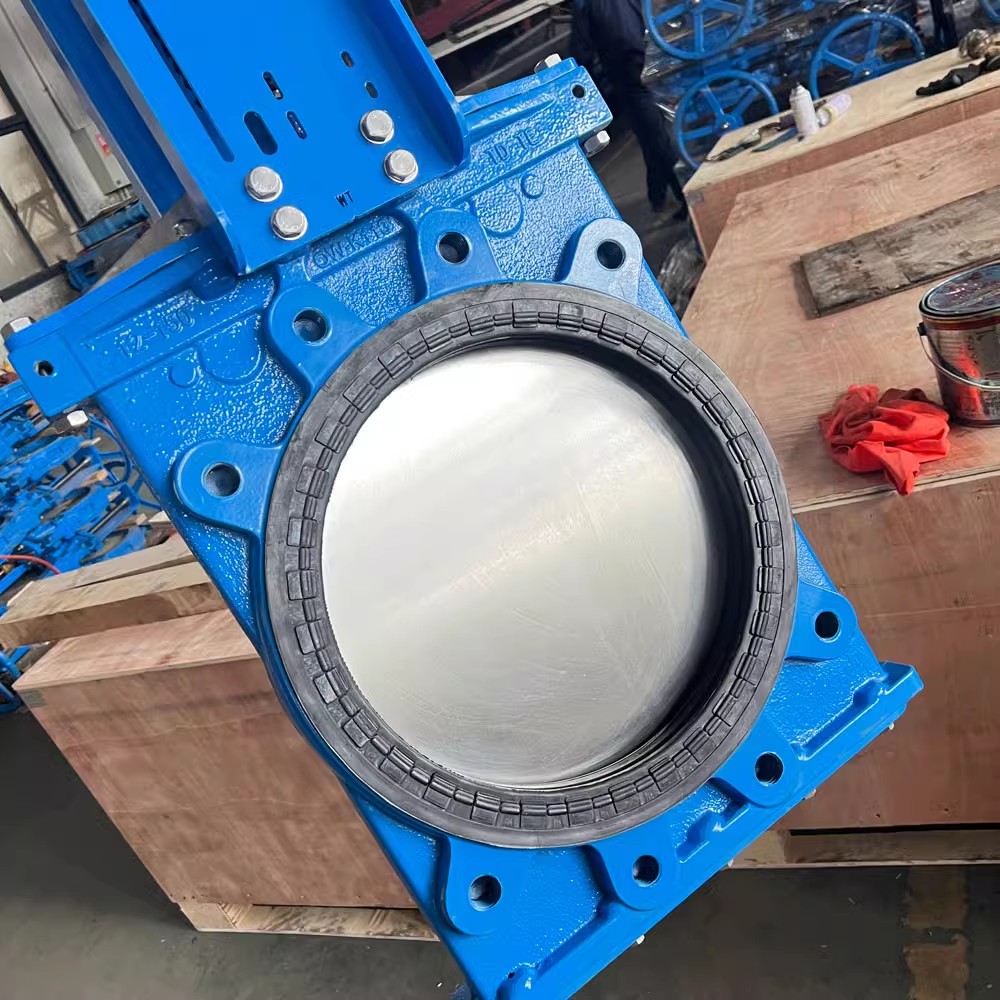Exploring Types of Knife Gate Valves: exact_keywords in Focus
- SZSPSK
- 2024-11-29 17:53
Key Takeaways
Knife gate valves serve a critical function in various industries by providing effective control over the flow of liquids and slurries. Sewer knife gate valves are specifically designed for handling waste and sewage, featuring robust construction to withstand corrosive environments. Their streamlined design ensures minimal pressure drop, which is essential for efficiency in wastewater management systems. Slide knife gate valves offer a versatile solution with a simple mechanism that enables quick operation. These valves excel in scenarios requiring frequent switching between open and closed states, making them ideal for applications such as chemical processing.
The sluice knife gate valve stands out due to its unique design that facilitates the handling of thicker fluids and solids. This valve type often finds its application in water treatment facilities and mining operations where durability and performance are paramount. Lastly, square port knife gate valves are engineered with a square opening that allows for an unobstructed flow path. This design minimizes turbulence and enhances flow characteristics, making these valves suitable for specific industrial processes with stringent performance requirements. Understanding these key features will aid us in selecting the most appropriate valve type for our operational needs, ensuring optimal efficiency across diverse applications.
Understanding Sewer Knife Gate Valves: Features and Applications
Sewer knife gate valves play a crucial role in managing the flow of wastewater within various municipal and industrial systems. These valves are specifically designed to handle the challenging environments of sewer systems, where they must effectively isolate sections of piping or equipment for maintenance and repair. One of the primary features that distinguish sewer knife gate valves is their ability to provide a tight seal, which is essential for preventing leaks and maintaining system integrity. The design often incorporates a knife-like blade that slices through thick sludge or debris, ensuring smooth operation even in challenging conditions. Their construction usually involves robust materials that can withstand corrosive elements commonly found in sewage, allowing for extended service life.
Applications for sewer knife gate valves are diverse, ranging from wastewater treatment plants to industrial discharge systems. In these settings, they facilitate efficient control over flow rates and pressure variations, significantly enhancing operational flexibility. The ease of maintenance associated with these valves also stands out; routine inspections can be conducted with minimal downtime. By selecting the appropriate sewer knife gate valve tailored to specific needs and environmental conditions, industries can ensure reliable performance while adhering to necessary safety standards.
The Mechanism Behind Slide Knife Gate Valves: Efficiency and Use Cases
The slide knife gate valve operates with a straightforward yet effective mechanism that emphasizes efficiency in fluid control. Utilizing a sliding blade, this valve allows for unobstructed flow when fully open, minimizing turbulence and pressure loss. The design of the slide knife gate valve ensures optimal penetration into the flow stream, aiding in quick isolation of the media. As we consider its applications, we find that this valve is particularly advantageous in industries where rapid on-off control is necessary, such as wastewater treatment and pulp and paper manufacturing. The valve's robust construction enhances its functionality in handling viscous fluids, providing durability even under high-pressure conditions. Its ability to maintain a tight seal when closed further enhances its reliability, thus preventing leakage in critical processes. By employing a manual or actuated operation system, we can easily integrate this valve into various pipeline systems to meet operational demands efficiently. Therefore, understanding the mechanism and specific use cases of slide knife gate valves allows us to appreciate their significant role in industrial fluid management.
Sluice Knife Gate Valves: Key Characteristics and Industrial Applications
Sluice knife gate valves play a crucial role in fluid control within various industrial applications. These valves are specifically designed to provide a tight seal and facilitate effective isolation of flow in pipelines. One of the defining features of sluice knife gate valves is their robust construction, which often includes materials able to withstand harsh chemicals and extreme pressure, ensuring durability over time.
In many industries, including water treatment, mining, and power generation, we utilize sluice knife gate valves to manage the flow of liquids and slurries. Their unique design minimizes the risk of entrapment that can lead to blockages or system inefficiencies. The blade-like gate operates in a linear motion, allowing for quick openings and closures which are vital in emergency scenarios.
Sluice knife gate valves can also be equipped with pneumatic or electric actuators, enhancing their functionality and enabling remote operation. In our analysis of industrial applications, we find that these valves excel not only in handling fluid flow but also in managing mixed solids due to their ability to effectively handle varying degrees of viscosity and particulates.
"When selecting sluice knife gate valves for your operations, consider the specific fluid characteristics and potential environmental exposure for optimal performance."
Ultimately, incorporating sluice knife gate valves into our systems optimizes operational efficiency, prolongs equipment life, and ensures compliance with safety standards across many industrial domains.

Square Port Knife Gate Valves: Benefits in Specific Operational Contexts
Square port knife gate valves offer distinctive advantages in various industrial applications, particularly where space constraints and flow dynamics play crucial roles. These valves are designed with a square-shaped port, which enables a higher flow coefficient compared to traditional circular ports. This configuration allows for a more efficient passage of fluids, minimizing turbulence and energy loss during operation. The design facilitates full opening and closing with minimal effort due to its unique blade mechanism that slices through the medium, eliminating resistance that typical gate valves might encounter.
In wastewater treatment facilities, square port knife gate valves are particularly beneficial for handling thick sludge and solid waste. Their capacity for effective sealing prevents backflow and leakage while ensuring a consistent flow rate is maintained within the system. Applications in agricultural irrigation systems further illustrate their utility, where the ability to control large volumes of water efficiently can lead to improved resource management.
Moreover, the robust construction of square port knife gate valves makes them suitable for handling corrosive materials in chemical processing industries. They can be engineered from various materials such as stainless steel, which enhances durability and extends service life while reducing maintenance costs.
Technical Specifications Table
Specification | Details |
|---|---|
Port Shape | Square |
Body Material | Stainless Steel or Cast Iron |
Size Range | 2" to 48" |
Pressure Rating | Up to 150 psi |
Temperature Range | -10°F to 200°F |
Actuation Method | Manual or Automated |
The importance of selecting the right valve type cannot be overstated. The ability of square port knife gate valves to provide efficient control over flow rates while accommodating varying pressure conditions makes them invaluable in specific operational contexts. Their versatility ensures that industries can optimize their processes effectively while maintaining safety and compliance with regulations.

Conclusion
Knife gate valves serve crucial roles in various industrial applications, each type offering specific advantages suited to different operational needs. The sewer knife gate valve excels in managing flow within waste water systems due to its robust construction, which handles abrasive materials effectively. Slide knife gate valves are known for their smooth operation and high efficiency, making them ideal for applications requiring frequent flow adjustments. For environments dealing with liquids and slurries, sluice knife gate valves present a dependable choice, providing reliable sealing and ease of maintenance. Lastly, the square port knife gate valve stands out in processes needing larger openings for greater volume passage, combining functionality with a space-efficient design. Understanding these distinct features empowers us to select the most suitable valve for specific contexts, enhancing our operational efficiency and reliability across infrastructure systems.

FAQs
What is a sewer knife gate valve?
A sewer knife gate valve is specifically designed for controlling the flow of wastewater in sewage systems. Its robust construction allows it to handle abrasive substances and high-pressure environments.
How does a slide knife gate valve operate?
A slide knife gate valve utilizes a flat, sliding plate that moves vertically to open or close the flow path. This design ensures minimal pressure drop and efficient flow regulation in various applications.
What are the key characteristics of sluice knife gate valves?
Sluice knife gate valves are known for their large opening sizes and are commonly used in applications where quick isolation of flow is essential, such as water treatment plants and irrigation systems. Their thick body construction facilitates durability under harsh conditions.
In what scenarios would a square port knife gate valve be beneficial?
A square port knife gate valve provides a larger opening compared to standard round valves, allowing for higher flow rates. This design is beneficial in system designs that prioritize volume capacity and efficiency, typically seen in mining or heavy industrial processes.
Which industries commonly use these types of valves?
Various industries utilize these valves, including municipal water treatment, sewage management, chemical processing, and power generation. Their diverse applications highlight their importance in effective flow control across multiple sectors.





